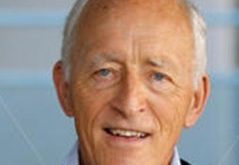.[embedded content] Ein besorgniserregender Aspekt des Wokismus ist seine Besessenheit von Viktimisierung. Die Wokisten konzentrieren sich auf kollektive Viktimisierung anstelle des Individuums. Sie klassifizieren Individuen nach ihrer Zugehörigkeit zu Identitätsgruppen und weisen ihnen einen Opferstatus gemäß diesen Kriterien zu. Diese Herangehensweise reduziert Individuen auf ihre Gruppenidentität und untergräbt so ihre Autonomie und ihre Fähigkeit, sich als einzigartige...
Read More »What’s the use of economics?
What’s the use of economics? The simple question that was raised during a recent conference … was to what extent has — or should — the teaching of economics be modified … The simple answer is that the economics profession is unlikely to change. Why would economists be willing to give up much of their human capital, painstakingly nurtured for over two centuries? For macroeconomists in particular, the reaction has been to suggest that modifications of...
Read More »Circular permutations (personal)
Yours truly is helping to prepare our youngest daughter with mathematics for her Swedish Scholastic Aptitude Test (Högskoleprovet) in a few weeks, and recommended this excellently pedagogical presentation on how to solve problems related to circular permutations: [embedded content]
Read More »Twenty fallacies of modern economics
Twenty fallacies of modern economics 11) To criticise/oppose the current mathematical modelling emphasis is to adopt an antiscience stance. It is not. Mathematics is not essential (or inessential) to science; science involves using tools that are appropriate to the given task. A science of economics is perfectly feasible, and the current emphasis on mathematical modelling in economics serves, given the nature of social reality, mostly to prevent that...
Read More »Clara Mattei och åtstramningspolitiken
I veckans avsnitt av Starta Pressarna intervjuas Clara E. Mattei — författare till boken Kapitalets ordning: Hur ekonomer skapade åtstramningsdoktrinen och banade väg för fascismen (Verbal förlag, 2023) — och diskuteras hennes tes om att den ekonomiska åtstramningspolitiken historiskt växt fram som ett sätt att hålla tillbaka arbetarklassen. Som alltid på den här podden — både intressant och tankeväckande! För många konservativa och nyliberala politiker och...
Read More »Methodology — the main problem with mainstream economics
Methodology — the main problem with mainstream economics The basic problems mostly originate at the level of methodology, and in particular with the current emphasis on methods of mathematical modelling. The latter emphasis is an error given the lack of match of the methods in question to the conditions in which they are applied. So long as the critical focus remains only, or even mainly or centrally, at the level of substantive economic theory and/or...
Read More »Top 25 Heterodox Economics Books
Top 25 Heterodox Economics Books Karl Marx, Das Kapital (1867) Thorstein Veblen, The Theory of the Leisure Class (1899) Joseph Schumpeter, The Theory of Economic Development (1911) Nikolai Kondratiev, The Major Economic Cycles (1925) Gunnar Myrdal, The Political Element in the Development of Economic Theory (1930) John Maynard Keynes, The General Theory (1936) Karl Polanyi, The Great Transformation (1944) Paul Sweezy, Theory of Capitalist Development...
Read More »Keynes and Ramsey on probability
Keynes and Ramsey on probability .[embedded content] Although Blackburn on the whole gives a succinct and correct picture of Keynes’s view on probability, I think it’s necessary to somewhat qualify in what way and to what extent Keynes “lost” the debate with Frank Ramsey. In economics, it’s an indubitable fact that few mainstream neoclassical economists work within the Keynesian paradigm. All more or less subscribe to some variant of Bayesianism. And some...
Read More »Friskolorna och betygsinflationen
Elever på fristående gymnasieskolor får högre betyg utan högre faktiska kunskaper och får därför orättvist större möjligheter att studera vidare än elever på kommunala gymnasieskolor. I SVT:s Agenda diskuterades ikväll att det trots två decennier av rapporter om orättvisa betyg så fortsätter problemet år efter år. Ingenting händer och utbildningsminister Mats Persson (L) hade inget annat att komma med för att råda bot på rättsosäkra inflaterade betyg än att en utredning är...
Read More »Echte Frauen und AfD
Echte Frauen und AfD .[embedded content] Herr Krah ist offensichtlich ein Mann, der Pech hat, wenn er versucht zu denken …
Read More » Lars P. Syll
Lars P. Syll





